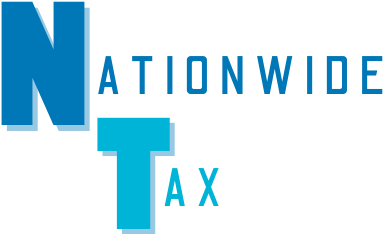Introduction
Are you a business owner or manager looking to streamline your payroll process? Consider using a payroll service provider. These companies specialize in handling payroll tasks, such as calculating employee wages, deducting taxes, and issuing paychecks. But before you make a decision, it’s important to weigh the pros and cons of using a payroll service provider. In this article, we’ll explore the advantages and disadvantages to help you make an informed choice.
Table of Contents
- Pros of Using a Payroll Service Provider
- Cons of Using a Payroll Service Provider
- Key Takeaways
- FAQs
- Conclusion
Pros of Using a Payroll Service Provider
1. Time and Cost Savings
Outsourcing your payroll to a service provider can save you valuable time and money. Instead of spending hours each month processing payroll, you can focus on more important tasks, such as growing your business. Payroll service providers also have the expertise to ensure accurate calculations and compliance with tax laws, reducing the risk of costly errors.
2. Enhanced Security and Data Protection
A reputable payroll service provider will have robust security measures in place to safeguard your sensitive payroll data. They invest in advanced technologies and encryption protocols to protect your information from unauthorized access or data breaches. By outsourcing your payroll, you can have peace of mind knowing that your data is in safe hands.
3. Access to Expertise
Payroll service providers employ professionals who are knowledgeable about payroll laws, regulations, and best practices. They stay updated on changes in tax codes and employment laws, ensuring that your payroll remains compliant. By tapping into their expertise, you can avoid legal pitfalls and stay on top of payroll-related regulations.
4. Scalability
As your business grows, so does your payroll. With a payroll service provider, you can easily scale up your payroll operations without worrying about hiring and training additional staff. They have the infrastructure and resources to handle payroll for businesses of all sizes, allowing you to focus on your core business activities.
Cons of Using a Payroll Service Provider
1. Cost
While outsourcing your payroll can save you time, it does come with a cost. Payroll service providers charge fees based on factors such as the number of employees and the complexity of your payroll. It’s important to consider whether the benefits outweigh the costs for your business.
2. Loss of Control
By outsourcing your payroll, you’re entrusting a third party with a critical aspect of your business. This means giving up some control over the payroll process, as the service provider handles tasks like issuing paychecks and handling tax filings. It’s essential to choose a trusted and reliable provider to ensure the smooth operation of your payroll.
3. Communication Challenges
Working with a payroll service provider may introduce communication challenges. If you prefer a hands-on approach or have specific payroll requirements, you’ll need to ensure clear and effective communication with your provider. Establishing open lines of communication and setting expectations upfront can help mitigate any potential issues.
4. Dependence on Third Party
Relying on a payroll service provider means relying on an external entity to handle a critical function of your business. While most payroll service providers have robust systems and processes in place, there is always a small risk of disruptions or errors. It’s important to have contingency plans in case of any unforeseen circumstances.
Key Takeaways
Using a payroll service provider can offer several benefits, including time and cost savings, enhanced security, access to expertise, and scalability. However, there are also potential drawbacks, such as the cost, loss of control, communication challenges, and dependence on a third party. It’s crucial to carefully evaluate these pros and cons to make an informed decision that aligns with your business needs.
FAQs
Q: How much does a payroll service provider typically charge?
A: The cost of a payroll service provider can vary depending on factors such as the number of employees and the complexity of your payroll. It’s best to request quotes from different providers to compare prices and services.
Q: Can I switch providers if I’m not satisfied?
A: Yes, you can switch payroll service providers if you’re not satisfied with your current provider. However, it’s important to carefully evaluate your options and ensure a smooth transition to avoid disruptions to your payroll process.
Q: Can a payroll service provider help with tax filings?
A: Yes, most payroll service providers offer tax filing services as part of their package. They can handle tasks such as calculating and deducting taxes, filing tax forms, and issuing W-2 forms to employees.
Conclusion
As you weigh the pros and cons of using a payroll service provider, consider your business’s specific needs and goals. While outsourcing your payroll can bring time and cost savings, enhanced security, access to expertise, and scalability, it’s important to carefully evaluate the potential drawbacks. By making an informed decision, you can find a payroll service provider that aligns with your business requirements and helps streamline your payroll process.
